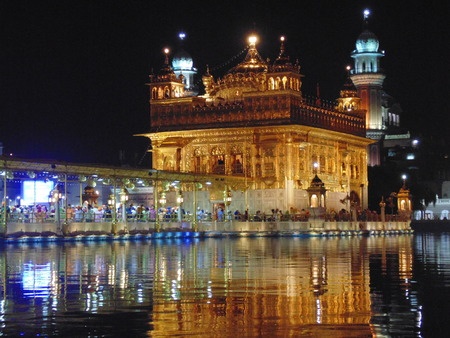4 May, 2017
A recent news item in glaring limelight has raised a significant IP issue. Whether a seemingly common yet catchy phrase through repeated use can be monopolized by an entity especially where the user may have a personality right or professional identity in it, is the burning issue!
Following the disassociation of Mr. Arnab Goswami with Times Now in November, 2016, applications for both word mark simpliciter and its stylized representation for the phrase ‘Nation wants to know’ were filed by Bennett, Coleman & Company Limited (owner of Times Now) on December 17, 2016 under NICE classes 38 (services such as television broadcasting, telecommunication) and 41 (services pertaining to education; providing of training; entertainment etc.). Interestingly, these applications were filed on a proposed to be used basis. Subsequently, ARG Outlier Media Pvt. Ltd., whose Managing Director happens to be Mr. Arnab Goswami and of which Republic TV is a part, filed word mark applications on January 27, 2017 for the phrases ‘Nation Wants To Know’ and ‘The Nation Wants To Know’ (“said phrase”) in Class 38. Pertinently, ARG has claimed the use of the said phrase since November 20, 2016, in these applications.
Ostensibly, the trade mark application filings by ARG has been the driving force behind the service of legal notice, allegedly by the owner of Times Now, asking Mr. Goswami to refrain from using the said phrase.
It would be interesting to examine the above from a legal eye as to whether, among other important aspects, the said phrase is indeed capable of being monopolized.
A phrase or slogan, even though seemingly common in respect of a given business, may be capable of being monopolized, thereby excluding others from its use. In such a case, the level of distinctiveness infused in the phrase through repeated use which may come to be associated with a single entity has a significant role to play. As far as a mark/slogan/phrase can bring to the minds of the consumers/viewers, a single business or identifiable source, the same may entail exclusivity.
Undoubtedly, there does exist goodwill/reputation in the phrase ‘Nation Wants to Know’, nonetheless, what remains as a question is whether the said phrase has a reputation attached with Times Now or Mr. Goswami?
Generally the IP created in the course of creator’s employment under a contract of service or apprenticeship belongs to the employer, in absence of any agreement to the contrary. Unlike Copyright Law, the Trade Marks Law does not specifically provide for this, however, the norm emerges from prevalent IP clauses in employment contracts. Assuming the presence of such an IP clause in Mr. Goswami’s contract with Times Now, if the said phrase was adopted / created by him in his course of employment as the editor-in-chief and news anchor, the cause of action on the basis of breach of contractual terms would lie in favor of Times Now. Conversely, if Mr. Goswami succeeds in establishing that the said phrase was adopted or used by him prior to his tenure at Times Now or even if during his stint at Times Now but not in the course of employment, he may safely steer his ship to the shore.
An interesting provision under the Trade Marks Act, 1999 (“the Act”) pertains to “Groundless threats of legal proceedings” which can be used by a receiver of a notice if it includes a threat for an action for infringement or a like proceeding, having no legitimate basis. In such a case, a lawsuit can be filed praying for an injunction or a restraint to such threats. However, this remedy may not be available to the receiver, if subsequent to the notice, an action for infringement has already commenced on the basis of a valid registered mark.
Assuming the said phrase applied for by Times Now’s owner, in future, is registered, a defence on the stand already taken by Mr. Goswami in his speech can be resorted to. As indicated by him, he uses the said phrase in accordance with honest practices and in a bona fide manner and has been doing so in matters of journalism. Further, if the said phrase is determined (for instance, by a court of law) to have been used by Mr. Goswami only in a descriptive sense while rendering the services of news anchorage, indicating the nature of a news debate or its characteristics, then the same would also not violate the prospective statutory rights, if any, of the adverse party.
Even otherwise, if Mr. Goswami, as he has already represented before the public, can prove through documentary evidence or otherwise (for instance, by affidavits of listeners / viewers in the past) that he has been using the said phrase as a verbal mark (in his original baritone) since a long period of time i.e. even before being associated with the adverse party, then the defence founded on rights flowing from prior use of the said phrase may be available.
But, who will emerge as the winner of this tussle? Well, the Nation Wants To Know!
For further information, please contact:
Aprajita Nigam, LexOrbis
mail@lexorbis.com

.jpg)





